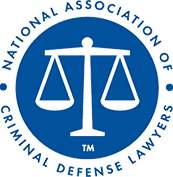
Orange County Tax Fraud Attorney
Providing Zealous and Experienced Legal Representation
In the face of tax fraud charges, you will need a dedicated and knowledgeable defense lawyer on your side to fight aggressively for you in court. Tax fraud can lead to profound consequences as a result of a small detail in your tax return or documents. Criminal defense attorney Diane C. Bass has years of experience and professional knowledge litigating state and federal cases, so you can trust her to defend you tenaciously against your charges.
If tax issues bring you before a judge in a courtroom, you must understand that the Internal Revenue Service (IRS) attorney will aggressively pursue penalties and try to prove you guilty of a number of types of crimes. Federal defense attorneys can be your strongest legal ally in and out of a courtroom if facing criminal charges for tax evasion and other tax problems. The Diane C. Bass law firm is well-equipped to defend you and your Orange County businesses against tax fraud charges and any other white-collar crime.
Just because the IRS tax attorneys have accused you of criminal charges does not mean that you are automatically guilty. In any criminal tax prosecution, you are innocent until proven guilty in a court of law. Establish your confidential attorney-client relationship with tax lawyer Diane C. Bass today by calling to schedule your consultation for legal advice.
What Constitutes Tax Fraud?
Tax cases can be divided into civil or criminal cases. In civil cases, the government might claim that the taxpayer made a mistake, calculation error, or acted negligently in the preparation and filing of their taxes. In a criminal case, the government could accuse the taxpayer of taking intentional actions in order to avoid having to pay the taxes owed. Criminal cases are much more serious and involve the possibility of substantial fines as well as prison sentences. Civil cases may just involve a fine but not the full criminal justice process or potential prison time.
Some of the most common forms of tax fraud in the United States are:
- evading state taxes and federal tax evasion;
- failing to file tax returns.
- failing to pay taxes;
- filing a false return;
- filing false documents;
- not collecting employment taxes;
Note that there is an important difference between tax fraud and a mistake – tax fraud and tax evasion involve wrongdoing that was intentional. So, a careless accident when filing does not constitute tax fraud. Some behavior that may signal tax fraud activity include:
- concealing assets;
- doing business in cash;
- not cooperating with tax authorities;
- not keeping records;
- not filing tax returns;
- not making estimated tax payments;
- understating income
Do You Need to Hire a Defense Attorney for Accusations of Federal Tax Evasion?
The IRS could conduct a thorough investigation to find the truth in a potential tax issue and may make a tax audit. If a legal issue is discovered, the IRS may make further investigation into the tax situation to better determine if fraud has occurred and if the federal government should file criminal charges.
If a tax audit determines that federal tax evasion has been committed, the IRS tax lawyers will pursue charges which may result in a convicted defendant seeing time in federal prison. Across Southern California and in the city of Irvine, tax evasion charges are aggressively fought over. With experienced criminal defense attorneys, you could see charges dismissed or reduced to misdemeanor charges.
While one may think that they are knowledgeable and well-intentioned enough to speak for themselves or their businesses in a court of law, it is highly advisable to seek a lawyers’ legal advice and courtroom representation. Your criminal defense attorney is bound by a confidential attorney-client relationship and will do their best to argue your federal tax fraud case and reach an outcome that serves your best interests. Contact the firm of defense attorney Diane C. Bass to schedule your consultation.
What Are Potential Penalties and Sentencing for Tax Fraud?
In civil tax cases, the penalties typically arise after a state or federal tax investigation notices a problem in personal or business tax returns, from glaring mistakes to simple calculation errors. Civil tax cases may result in no penalty at all or may result in a variety of fines. For instance, forgetting to file a return will result in a 5% penalty based on the amount of taxes due per month, while intentionally filing a fraudulent return can result in a 75% penalty.
Contact the Law Office of Diane C. Bass to Schedule Your Consultation
Tax fraud cases are serious matters at the state and federal levels. If you have been accused of committing tax fraud, whether for understating your income or not filing your tax return, it is critical that you consult an experienced attorney to build a defense for you to combat fines and jail time.
Criminal defense attorney Diane C. Bass can help you fight your civil or criminal tax fraud charges and defend you aggressively in court against the attorneys for the IRS.
To schedule your case evaluation with attorney Diane C. Bass, call (949) 990-4195.

Trusted By Clients
Reviews & Testimonials
-
"She will put your anxiety at ease and get you through the tangled system."Diane is the perfect mix of gentle understanding and fierce action you’ll need if you find yourself dealing with the OC court system.- Angie T.
-
"Whatever you’re going through, I’m confident Diane will achieve the best outcome you could hope for."My first impression was that she’s very experienced, no-nonsense, knows the law, how the system works, and was very busy as a result. I quickly realized that she exceeded even those first impressions but also cared very much about my story, needs, an- Daniel B.
-
"From the start of my case, she has been there for me."First of all, I would like to thank Diane for everything she has done for me. From the start of my case, she has been there for me. Only very few people were granted bond and she pulled it off in my case. I know for a fact not too many lawyers could have done that. I am on probation for three years.. while “the others” will not have the chance to raise their children and live their lives. I was headed to prison….I am free.. and for that, I am forever grateful.- John H.
-
"Diane Bass is a phenomenal attorney."After meeting with Diane I felt immediate comfort, and I was sold on the fact that I could trust this amazing person with my life. Diane Bass was there for me every step of the way like no other attorney had ever been.- Ryan O.
-
"She is not afraid to battle for you. With her, you will never be alone."Diane is a brilliant attorney. She listens carefully to your problems and clearly advises you with honesty. She was with me from the first day of my case and I have never been disappointed in any way.- Maria K.
-
"I highly recommend Diane if you are dealing with legal troubles of your own."Since this being my first Federal offense, I had no idea what to expect. I was extremely anxious. After talking to Diane, I felt like she was the attorney I needed to help me get through these challenging times. Her professionalism and knowledge of the law- Adam P.
-
"Diane’s work is second to none."
Diane’s work is second to none. I was charged with felony DV, and after working with one firm in Irvine that did absolutely nothing, I did some hard research and found Diane. She worked quickly and diligently and got the case dismissed. I absolutely don’t foresee me needing a criminal lawyer down the road, but if I do, it’ll be Diane hands down!
- Shadic A. -
"Diane is the most professional, thorough attorney I have ever met."Her expertise, connections, analysis, and comprehensive review of my situation were more than I could ever ask. I am extremely grateful and couldn't be happier with my choice!- Jeff R.


Why Choose Law Office of Diane C. Bass?
-
Top-Rated & Award-Winning Legal RepresentationWe consistently deliver results that exceed expectations, earning the trust of clients and accolades from the legal community.
-
25+ Years of Criminal Defense Legal ExperienceWith over 25 years of criminal defense legal experience, we bring a wealth of seasoned insight and a proven track record of success to every case we handle.
-
Extensive Knowledge & Experience With Federal CasesWith extensive knowledge and experience in federal cases, we offer comprehensive legal strategies tailored to the complexities of each situation.
-
An Outstanding Reputation Amongst Clients & PeersOur reputation among clients and peers alike reflects our unwavering dedication to achieving the best possible outcomes for those we represent.
-
Featured in the MediaAttorney Bass is frequently featured in media outlets such as The Washington Post, LA Times, ESPN, Forbes, the Wall Street Journal and more.
-
Track Record of SuccessWith a track record of handling some of the most significant cases in the Central District of California, our firm brings unmatched experience to every client's defense.




